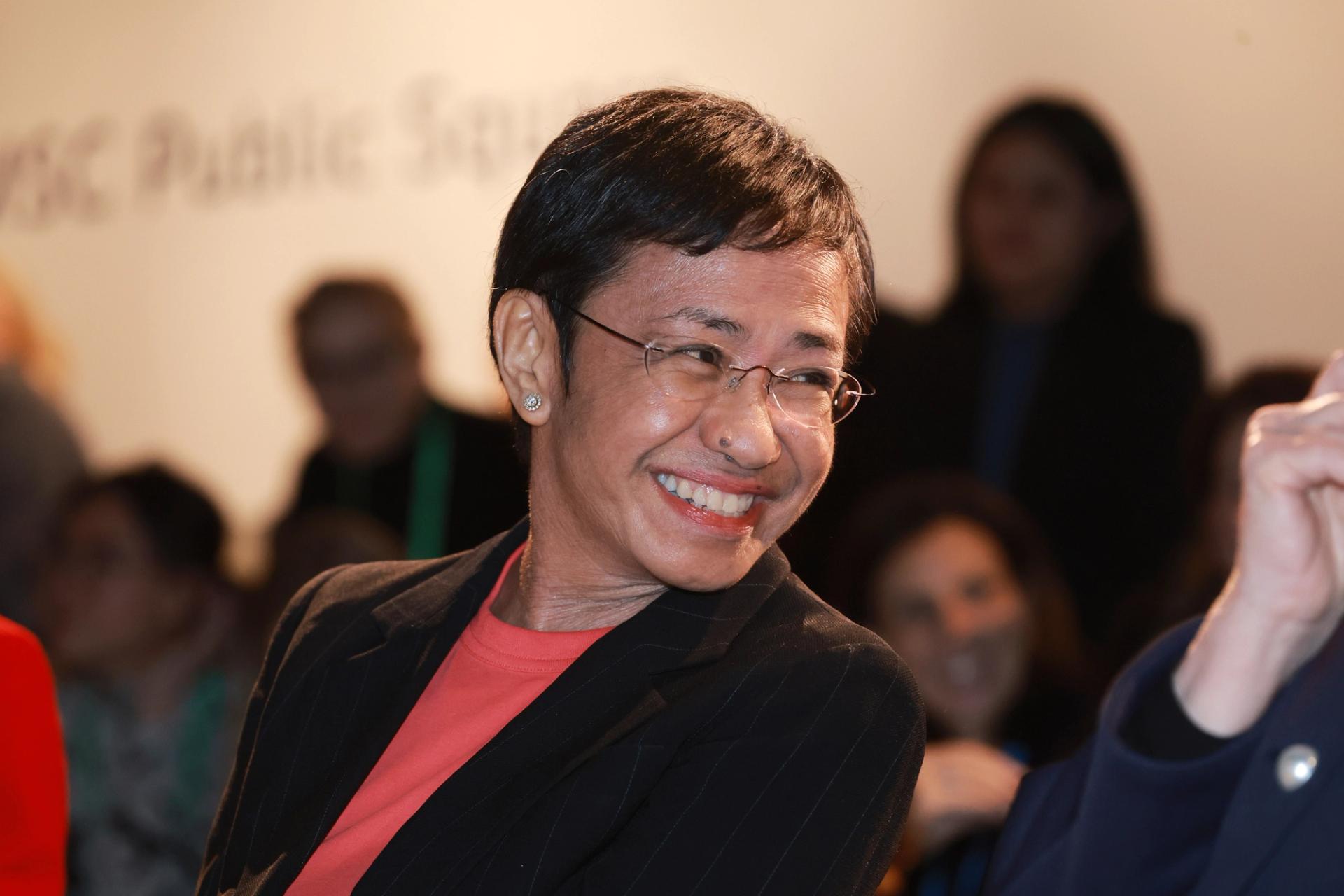Semaforum
Semaforums are occasional short Q&As with authors and other interesting figures. Maria Ressa is the co-founder and CEO of the Philippine news site Rappler and winner of the 2021 Nobel Peace Prize, along with Russian journalist Dmitry Muratov, for “their efforts to safeguard freedom of expression, which is a precondition for democracy and lasting peace.” She’s faced — and beaten — several criminal charges in the Philippines, although two are still pending. She spoke to Gina Chua and other members of Semafor staff at our New York office. This interview has been edited for length and clarity.
Gina: Congratulations on winning a Nobel Prize. You have a lot of pressure on you, because what you say feels much more meaningful. How do you handle all that?
Maria: People listen differently. That’s probably the only thing, because the data has always been there. The Pope is pulling 30 Nobel laureates together; we’re going to be talking about the age of machines, because the Pope has taken strong positions on it.
Gina: You very famously said to Mark Zuckerberg a long time ago that the whole line of attack on polarization and disinformation was all trialed in the Philippines. So we have Bongbong Marcos now as president, the son of a dictator who was ousted in a popular uprising, and a lot of his return to power came through sort of the rewriting of history and the erasure of history, which is again something you see across the rest of the world. What can media do about it? What can civil society do about it?
Maria: We need to write and report a lot more. Not on the new tech in terms of the way they promote it, like, not as fanboys and fangirls of tech, and you guys don’t, but I think we can do more of the impact on society.
Gina: Is regulation the solution you’re looking at?
Maria: I think it’s three [solutions]. Rappler breaks it up into tech, journalism, community.
Yes, regulation! Stop the impunity! Why are the tech companies allowed to experiment in real time on the public with impunity?
The second one is journalism. How will journalism evolve? How in the age when advertising is dead and dying, right, what do we do in the age where data privacy is gone, where micro targeting is about getting as much data as possible on each of us.
Number three is community. At Rappler, we realized from our data, that facts were under attack. It’s a very simple thing that began with a tech concept of personalization. Every time you personalize, you tear apart the public sphere.
Gina: What makes you optimistic about the world today?
Maria: I mean, still, people, right? We’re building tech. Journalists building tech have a set of standards and ethics. I think we will want better, and we deserve better.
This is the year. So I was telling Gina, I’m not going to sleep until the end of the year. And then I’m going to go be a hermit. Depending on what happens, this is the year. So please wake up your audiences. Wake everyone up. We need to feel like our backs are against the wall so that we move and act.

